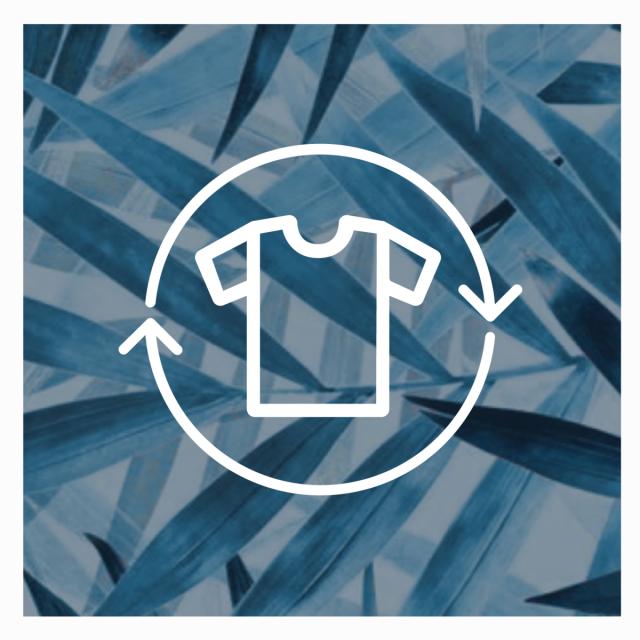MOOC List is learner-supported. When you buy through links on our site, we may earn an affiliate commission.

MOOC List is learner-supported. When you buy through links on our site, we may earn an affiliate commission.
In this course, we provide an overview of business model theory and discuss business models as essential tools in the transformation towards more sustainable businesses. Throughout the course, we will use business model theory as a foundation to look at how real-world fashion brands are adopting more sustainable ways of doing business. We will provide you with a rich opportunity to examine their efforts and consider strategies for your own organisation. Hopefully, you can also enlighten us with some local examples in your own countries for us to discover together new ways of dealing with sustainability.
By the end of the course, you have an understanding of the overall challenges and potential solutions for businesses to become more sustainable. You will learn about the challenges and opportunities of implementing circular business models and we will introduce various tools that companies use to measure and report about sustainability. You will be able to think about business model theory in new ways and apply strategies to manage business model innovation towards sustainable practices.
This is a very exciting time to be working in the fashion industry, so let's get started!
What You Will Learn
- You will broaden your knowledge on sustainable fashion, sustainable business models, circular economy and related concepts.
- You will understand the challenges and opportunities brands face when they try to create or transition into sustainable business models.
- You will learn the basic vocabulary and tools to discuss sustainable business models’ ideas and concepts in the context of fashion.
- You will be inspired by case examples from the fashion industry, and learn the details of their innovative and sustainable business models.
Syllabus
WEEK 1
Introduction
We often meet people who love fashion! We also meet people who say they couldn't care less about fashion. Or people who find one pair of pants that they really like and then buy 10 pairs to make sure they have pants to wear for a few years. The fascinating thing about fashion is that everybody uses clothes every day. No matter where you live or how much money you have. It is something we all share. Therefore clothing is also an incredibly interesting starting point for a discussion about sustainability. It is something we can all relate to in one way or another. And as clothing is something we all wear, imagine the impact it could have if the fashion industry was to become more sustainable. In the last several years consumers have become increasingly aware of the unsustainable social and environmental practices of the fashion industry. To respond to this increase in critical consumers and survive as a business - also in the long term - fashion companies need to find more sustainable ways of doing business. In this module, you will meet representatives from the industry who will briefly introduce you to some of the fundamental challenges and opportunities for practicing sustainability. Moreover, you will meet us, Ana and Kirsti, who have the extreme pleasure of guiding you throughout this course.
WEEK 2
Three Key Concepts
In this module, you will be introduced to 3 key concepts: The fashion industry, sustainability and business models. With these 3 concepts, you will be able to decode the past, present and future of sustainable fashion.
WEEK 3
Sustainable Business Models in Fashion
This module introduces you to a few inspirational brands and companies that work hard to create more sustainable business models. It will also provide a broad theoretical framework for sustainable business models and the differences between these models and traditional business models. At the end of it, you will hear the opinion of Elena Salcedo, a sustainable business model expert working for one of the biggest fashion brands in the world.
WEEK 4
Circular Economy in Fashion
In this module, you will be introduced to the basic concepts that define the circular economy in general, and circular fashion in particular. You will be presented with the challenges that the fashion industry faces when trying to go circular. Following this introduction you will hear from our colleague Dr Kerli Kant Hvass, an expert on circular fashion. Finally Kirsti will introduce you to some pretty fascinating examples of circular companies in the fashion industry and you will meet MUD Jeans who is making a business of leasing and recycling jeans. We hope you will have fun!
WEEK 5
Organisational Approaches to Sustainable Fashion
In this module, we will learn about specific examples of startups and big brands dealing with sustainability. You will discover the different approaches, tools and realities of fashion brands trying to become more sustainable. What kind of sustainable business models are out there? Is it possible to be 100% sustainable? How can you measure your "sustainability"?
Keep watching and you will see how brands do it!
WEEK 6
Partners and Tensions
In this module we turn to partnerships for sustainability and the type of tensions that may arise when working together. You will learn about different types of partnership and some
WEEK 7
Course assessment
In this final assignment, you must take the skills you have learned to use in a case study of a fashion brand, manufacturer or other organization engaged in the textile and fashion industry.
MOOC List is learner-supported. When you buy through links on our site, we may earn an affiliate commission.
MOOC List is learner-supported. When you buy through links on our site, we may earn an affiliate commission.
